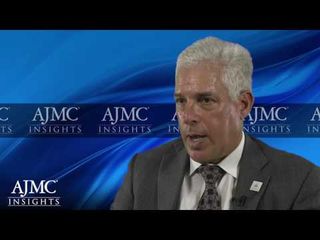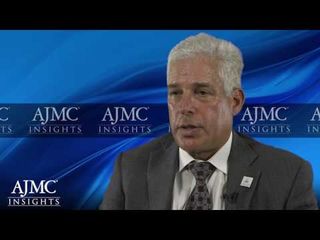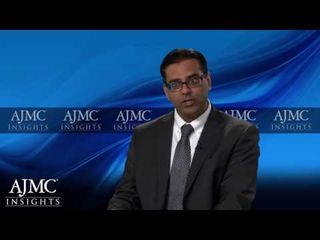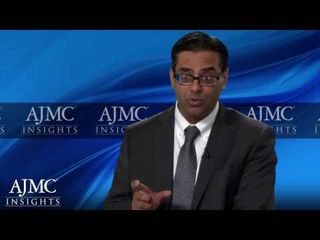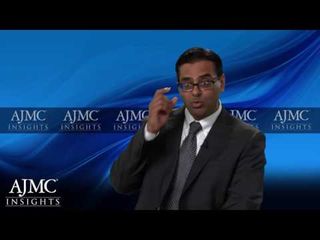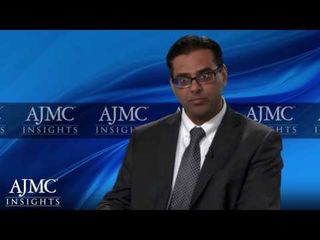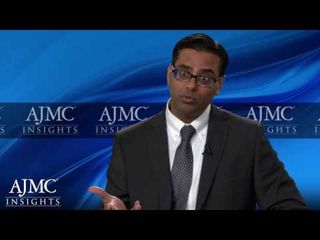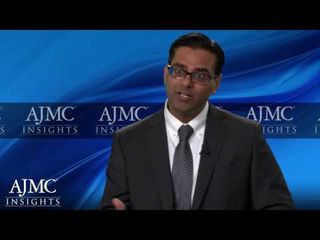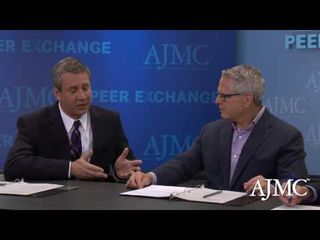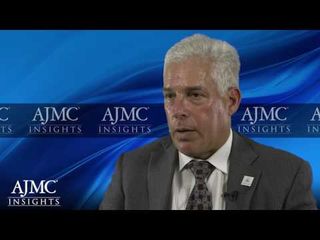
Oncology
Latest News
Latest Videos

CME Content
More News

This week, the top managed care stories included news that Risa Lavizzo-Mourey, MD, MBA, will be leaving the Robert Wood Johnson Foundation, a report that obesity rate in the military are also on the rise, and CMS denied Ohio's proposal to charge fees for Medicaid.

The American Journal of Managed Care reached out to Daniel F. Hayes, MD, FASCO, 2016-2017 president of the American Society of Clinical Oncology (ASCO), to understand his perception of how the recommendations of the Cancer Moonshot initiative's Blue Ribbon Panel would impact cancer care in the United States.

Patients with a history of cancer were more likely to suffer from obesity than the general population. This incidence was even greater in patients who were survivors of colorectal and breast cancers.

There has been a steady decline in death rates among children and adolescent patients diagnosed with cancer (ages 1 to 19 years), minus gender or racial disparity, between 1999 and 2014, according to a new report from the National Center for Health Statistics.

Following an FDA advisory on ovarian cancer screening tests, London-based Abcodia has announced that it will temporarily stop sales of its Risk of Ovarian Cancer Algorithm test in the United States.

A cost-effectiveness analysis has found that Oncotype DX may not be economical to make clinical decisions on adjuvant radiation treatment in patients with DCIS.

A study published in JAMA Oncology has found that interventions to improve patient-centered communication was successful in patients with advanced cancer, but it failed to improve quality of life (QOL), patient-physician relation, or healthcare utilization toward the end of life.

Although daratumumab reduced the risk of disease progression and death for patients with multiple myeloma, the drug was associated with a higher rate of neutropenia.

Insurance companies are making it mandatory for individuals to speak with qualified genetic counselors prior to testing for some hereditary cancers.

A study presented at the 2016 Palliative Care in Oncology Symposium has found that a majority users of the provisions under Oregon's Death With Dignity Act had cancer and most of them chose to die at home.

This week, the top stories in managed care were poll results that show Hillary Clinton is more trusted than Donald Trump when it comes to healthcare, multiple studies highlighting remaining disparities in healthcare, and results of a digital diabetes self-management program.

An early-phase, dose-finding study using a defined composition of chimeric antigen receptor-T cells, in patients with non-Hodgkin lymphoma, shows promise.

An update on some of the recent developments in the field of immuno-oncology.

Nearly 25% to 33% of family caregivers across the United States tend to ignore their own needs, resulting in poorer self-care and symptoms of depression and anxiety, according to a research study to be presented at the 2016 Palliative Care in Oncology Symposium.

More communities across the country have implemented policies prohibiting the sale of tobacco products in retail pharmacy stores in an effort to respond to pharmacists’ concerns about their professional obligation to promote health and wellness among patrons in their stores.

A Blue Ribbon Panel of experts from diverse healthcare fields has provided preliminary recommendations to achieve the objectives of the government's Cancer Moonshot initiative.

The FDA has accepted for priority review the supplemental Biologics License Application for Merck's pembrolizumab (Keytruda).

Patients with non-small cell lung cancer whose disease has metastasized to the brain can do without whole-brain radiotherapy, according to a new study published in the journal Lancet.

This week in managed care, the top stories included proposals from CMS to shore up the Affordable Care Act's marketplaces, research that highlighted the link between duration of obesity and cancer risk for women, and the results of an FDA diabetes workshop.

Researchers at the Sidney Kimmel Cancer Center collated concerns of African American breast cancer survivors to find that medical mistrust was a commonly raised issue.

Results of a new study published in the American Journal of Transplantation has found that international guidelines lack standardization on screening recommendations for solid organ transplant recipients.

Roche has announced that phase 3 results from the OAK study evaluating atezolizumab (Tecentriq) indicate improved overall survival compared with docetaxel in patients with locally advanced or metastatic non—small cell lung cancer.

A new report by the law firm Frier Levitt, commissioned by the Community Oncology Alliance, has found that restrictive tactics by pharmacy benefit managers, particularly in the specialty pharmacy arena, could restrict patient access to much needed medications.

At what point does the cost of cancer therapy affect the results? The current issue of Evidence-Based Oncology, a publication of The American Journal of Managed Care, takes on one of today’s biggest treatment challenges: the eye-popping prices of today’s new therapies can erect barriers to care before it begins.

Scientists at Brigham and Women’s Hospital are evaluating the depth of a trained radiologist’s eye to detect abnormalities on a mammogram, in an attempt to improve screening and earlier detection of disease.

